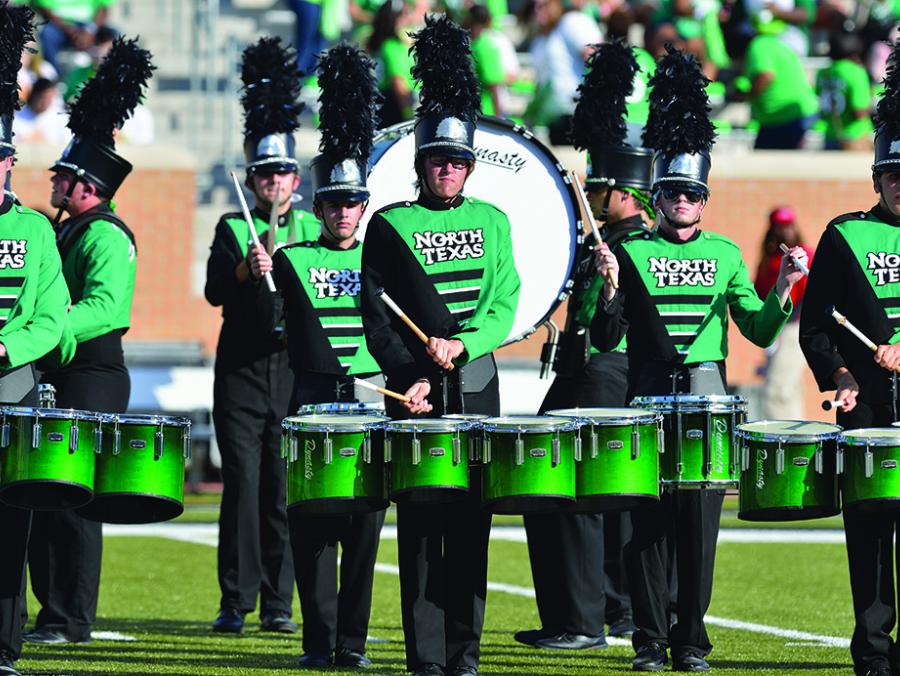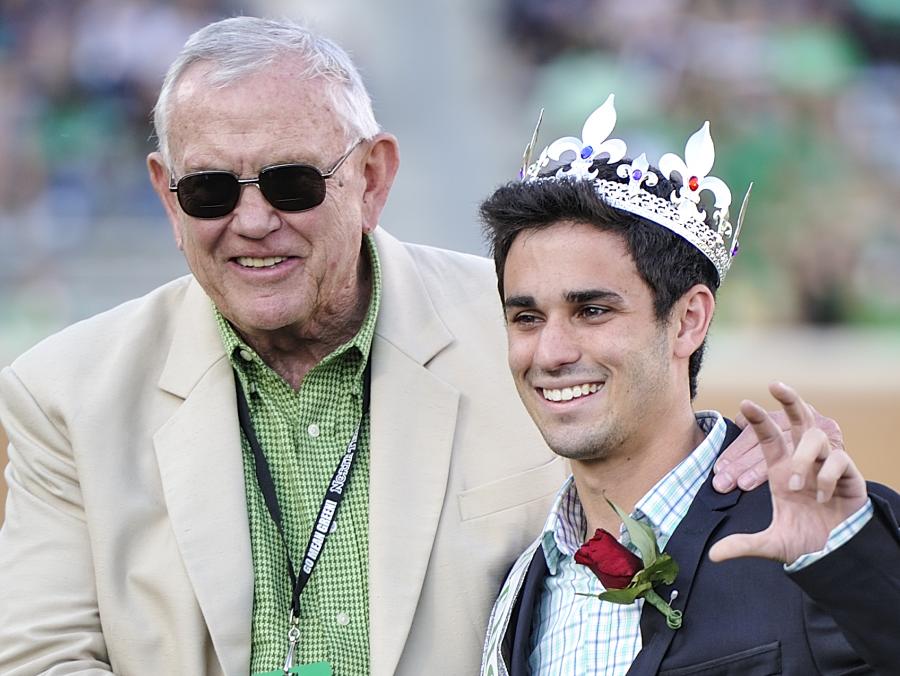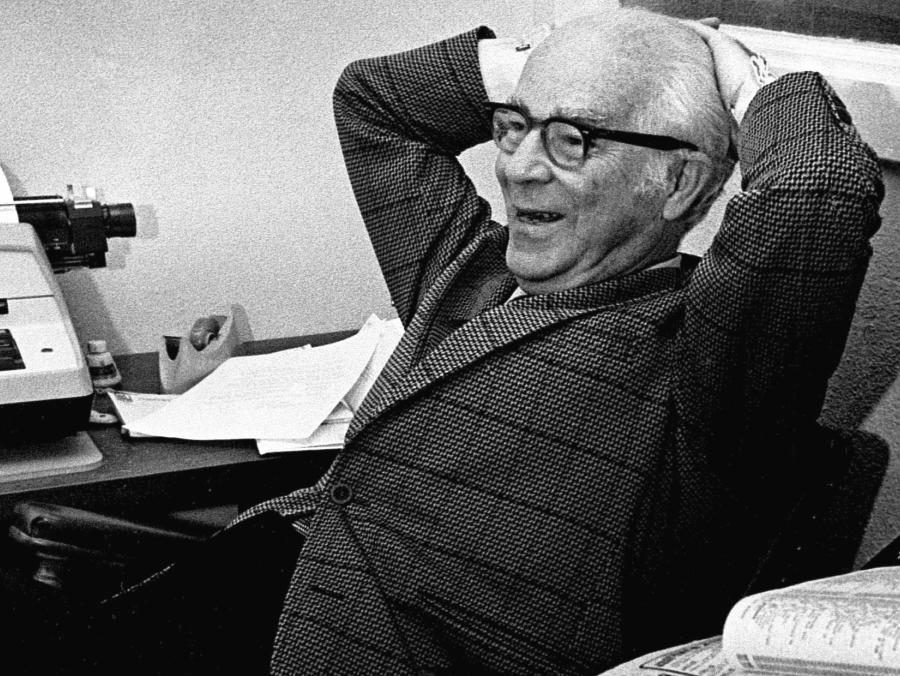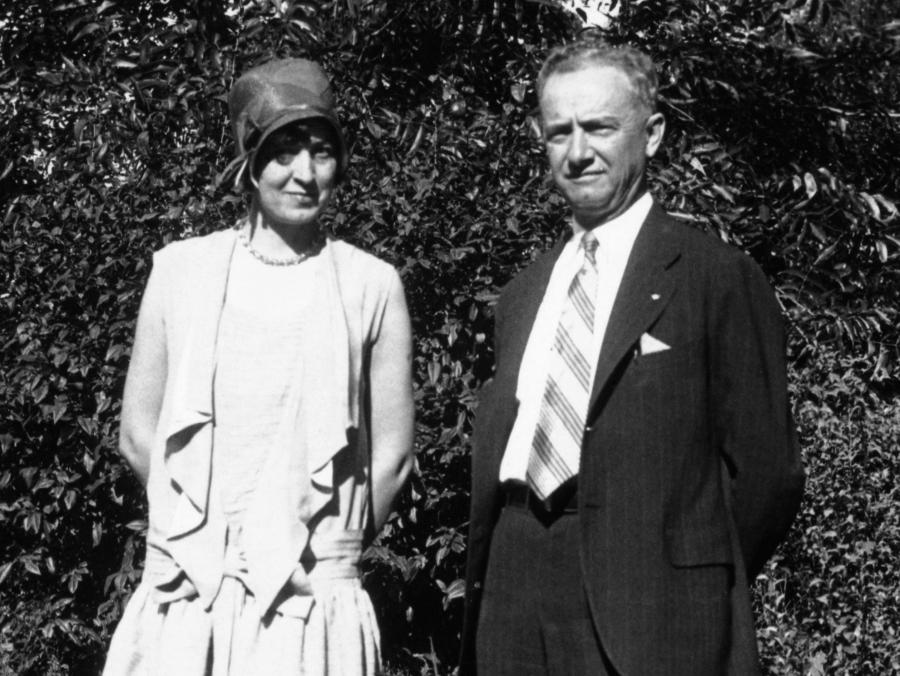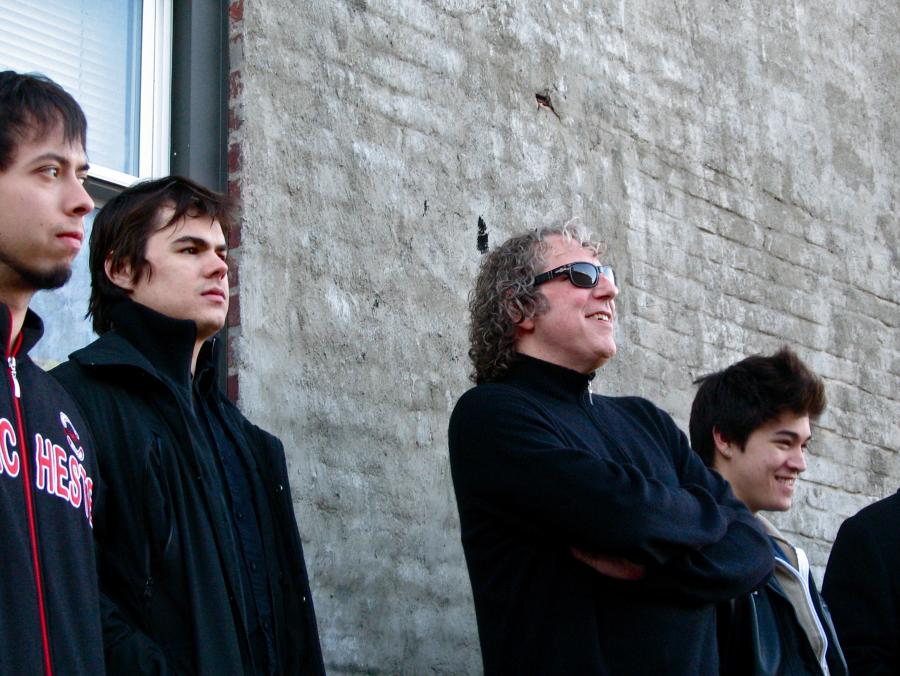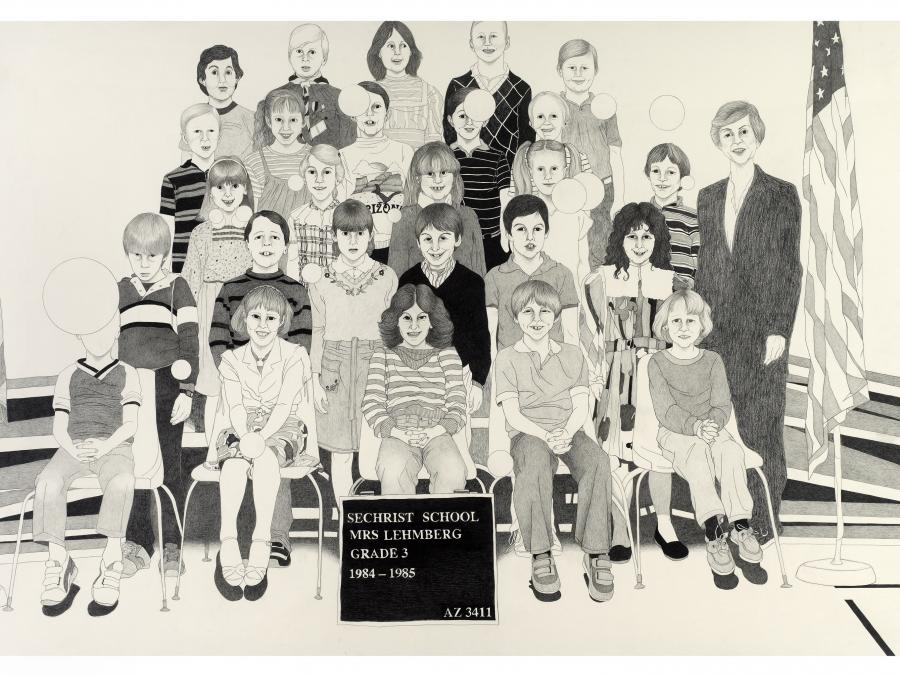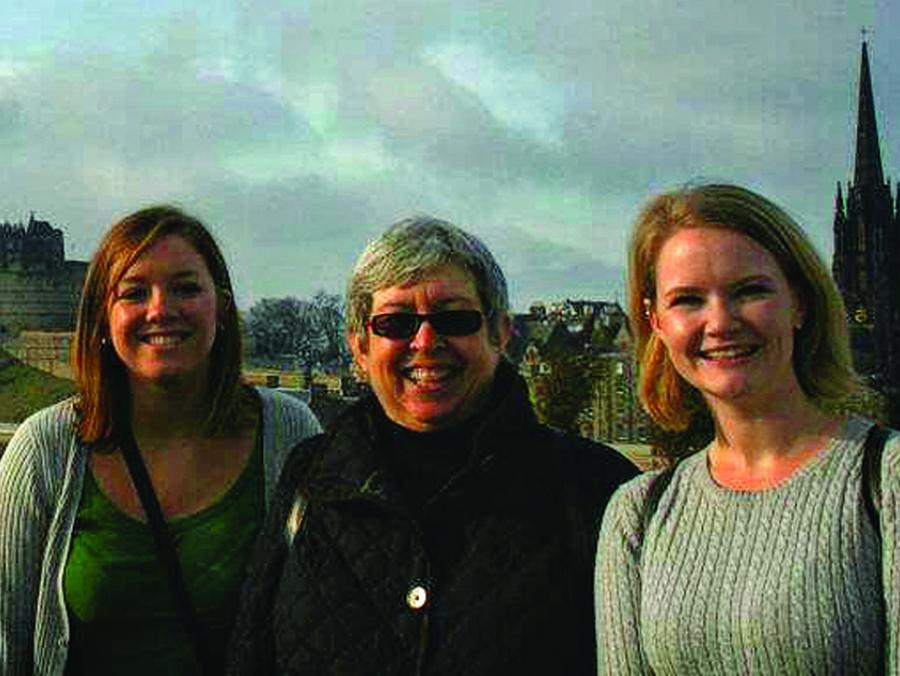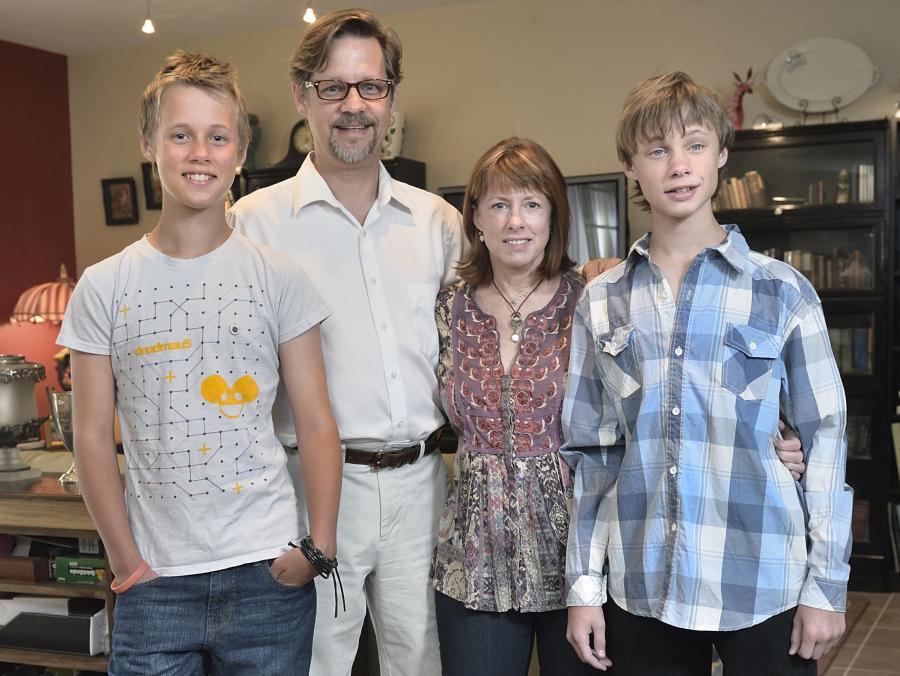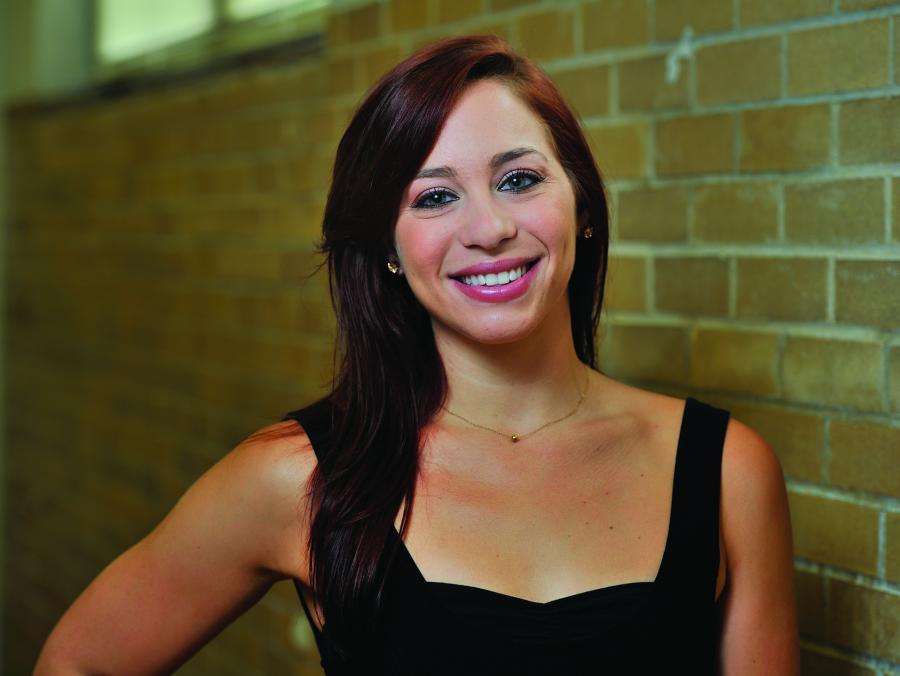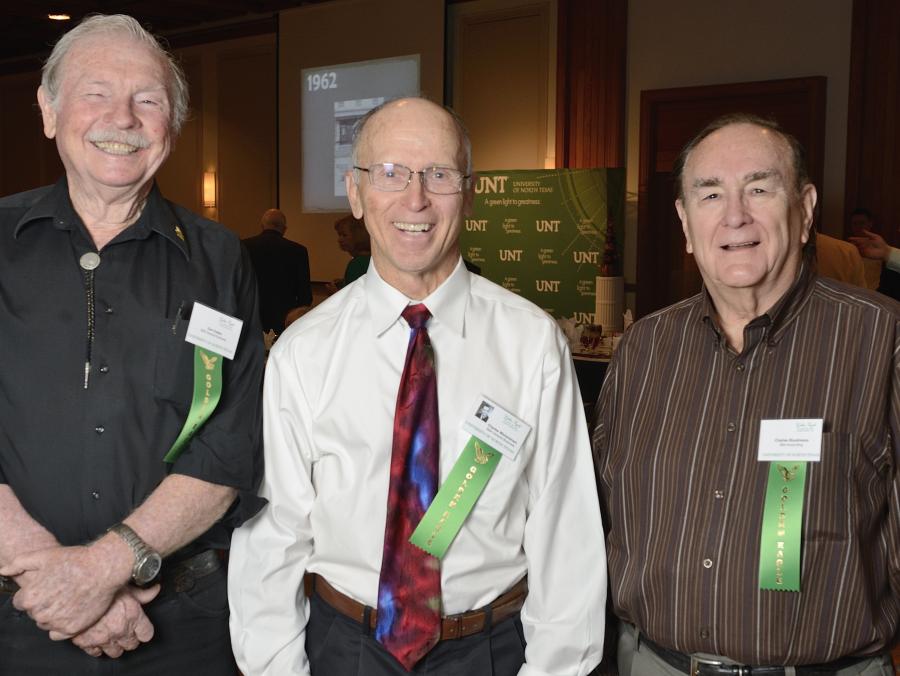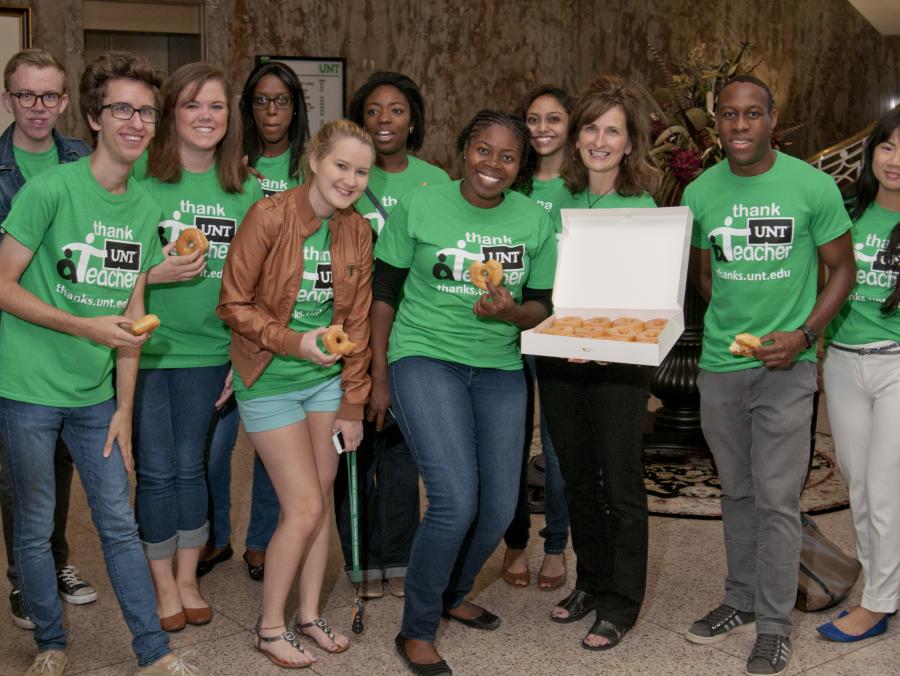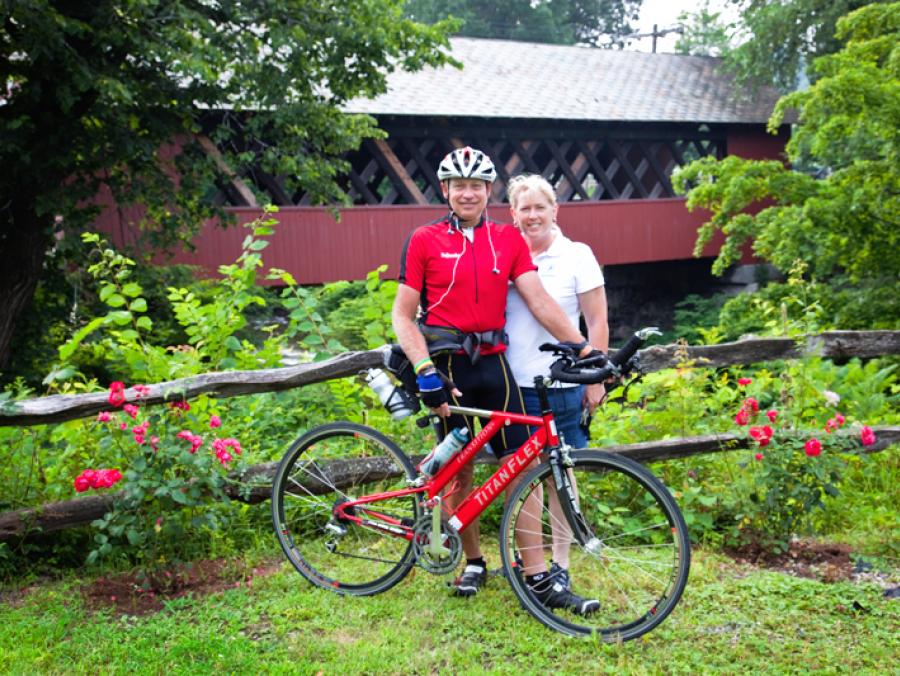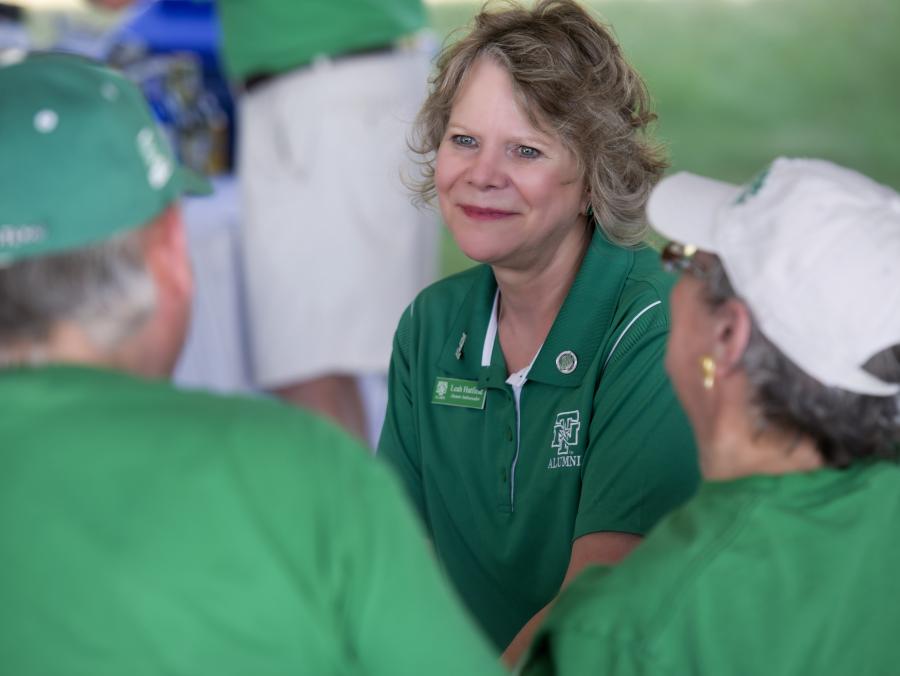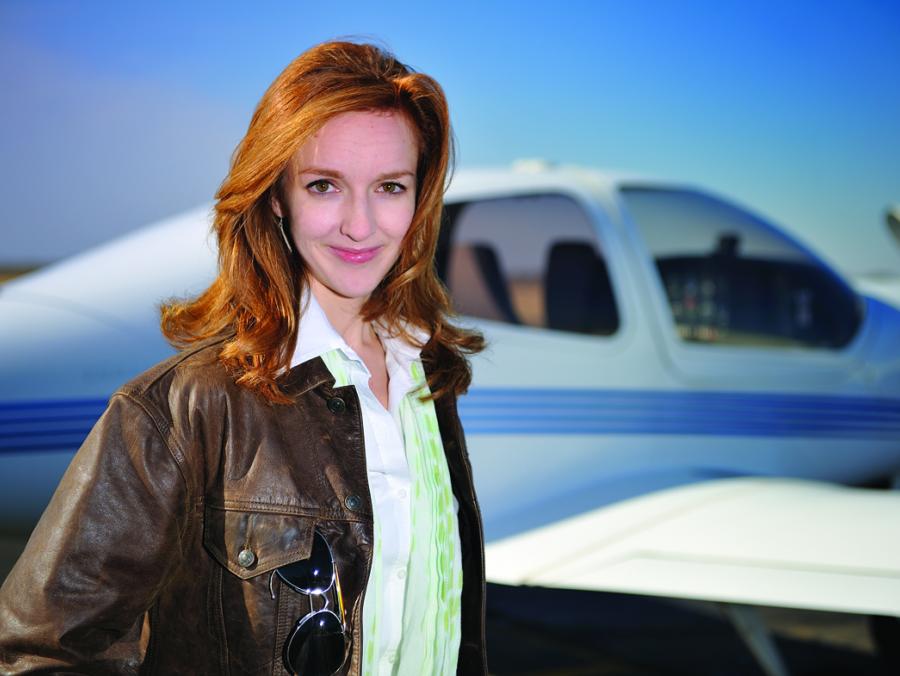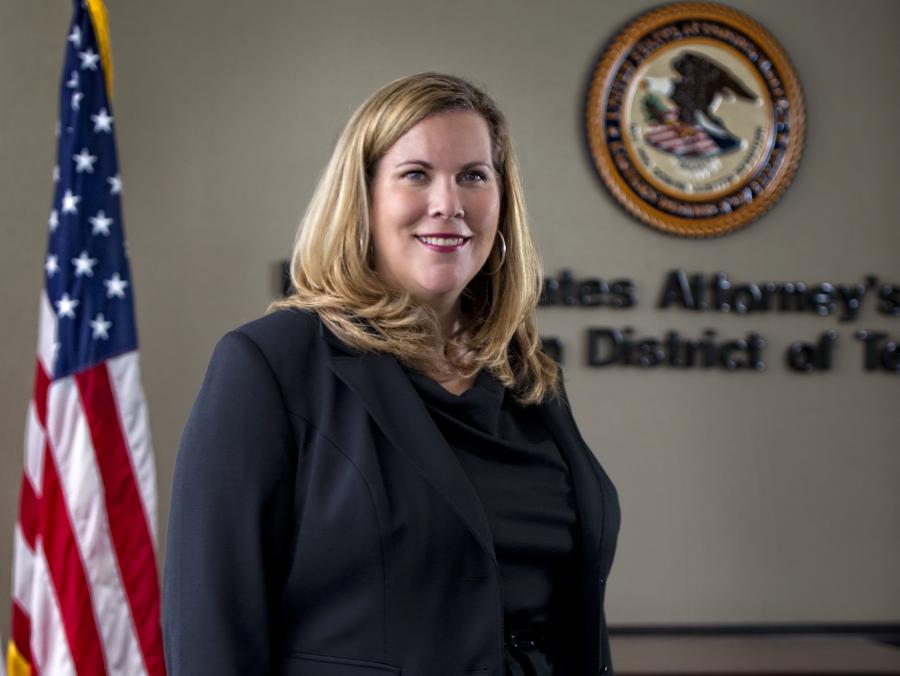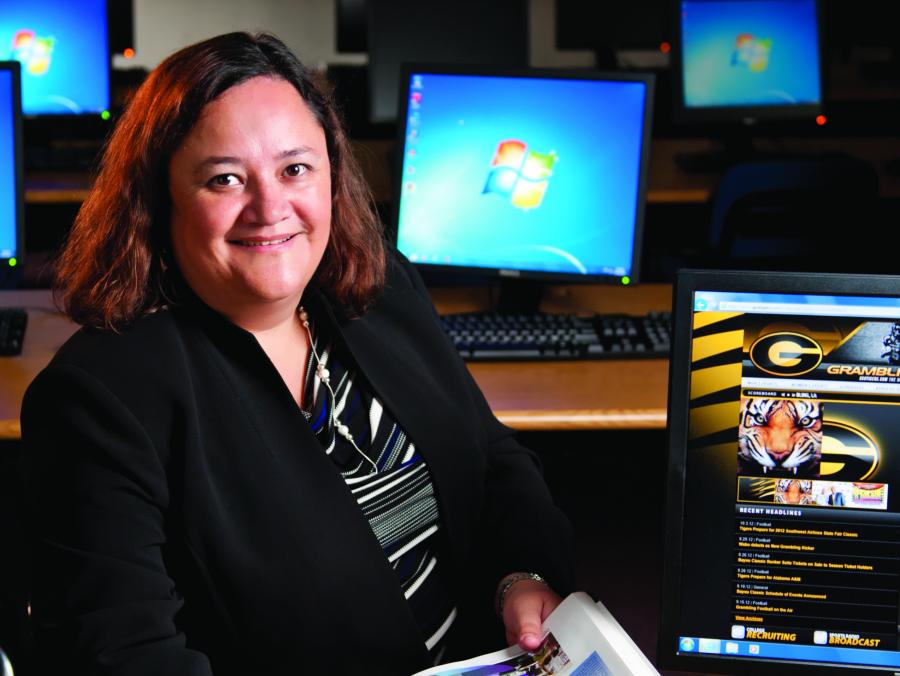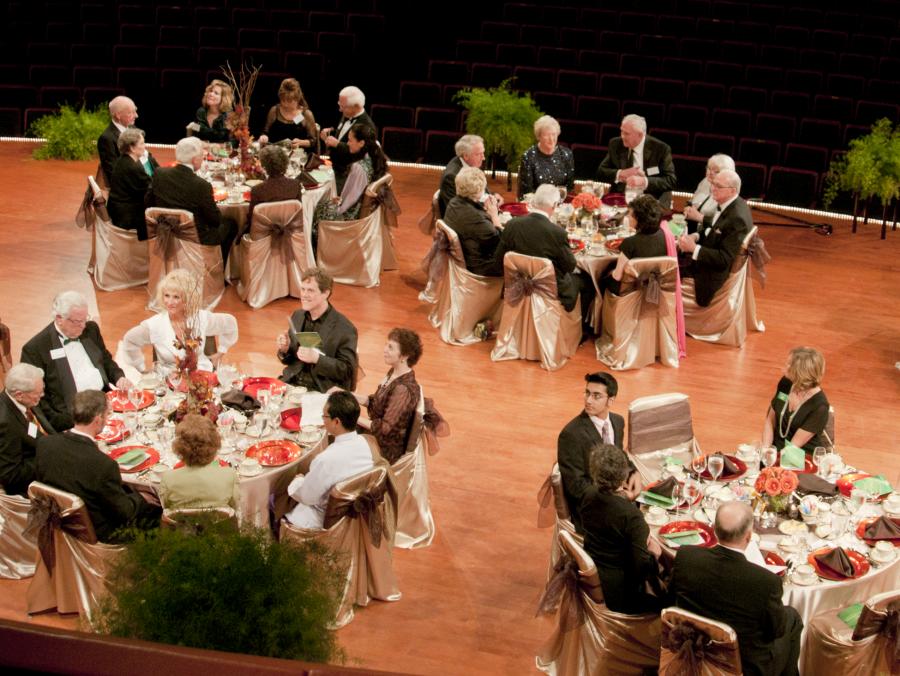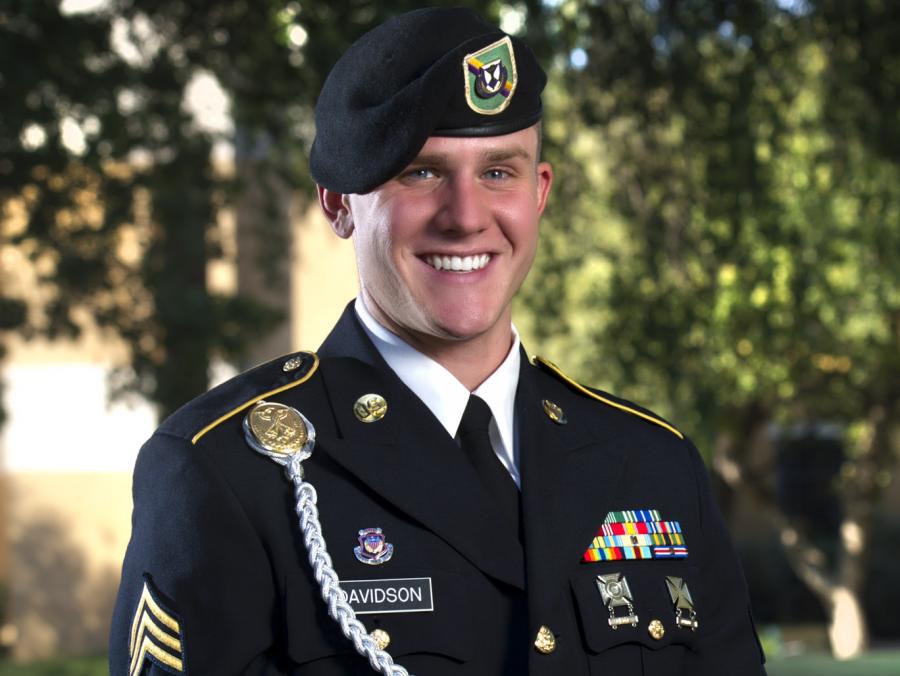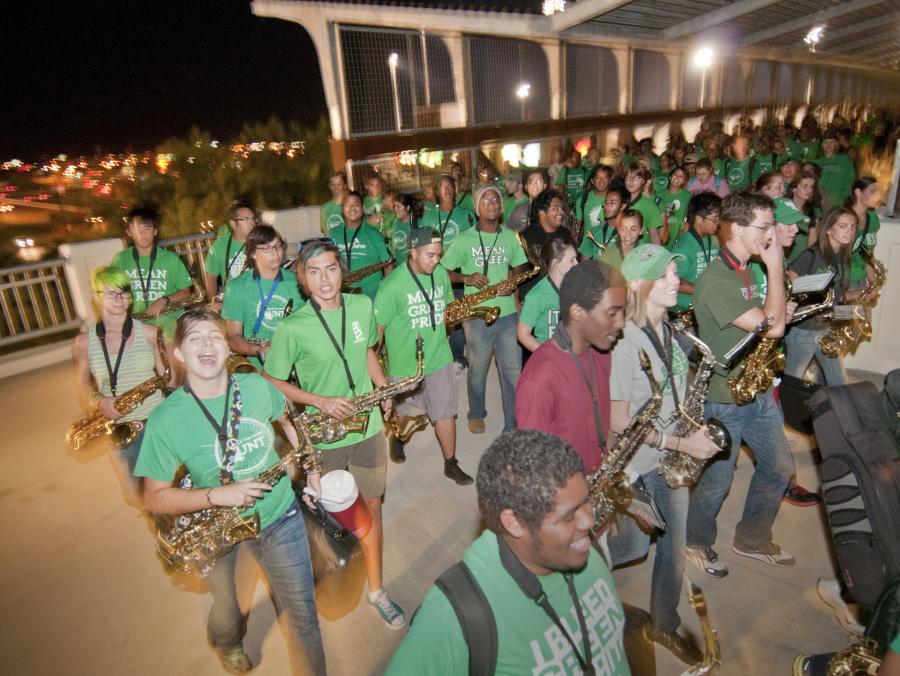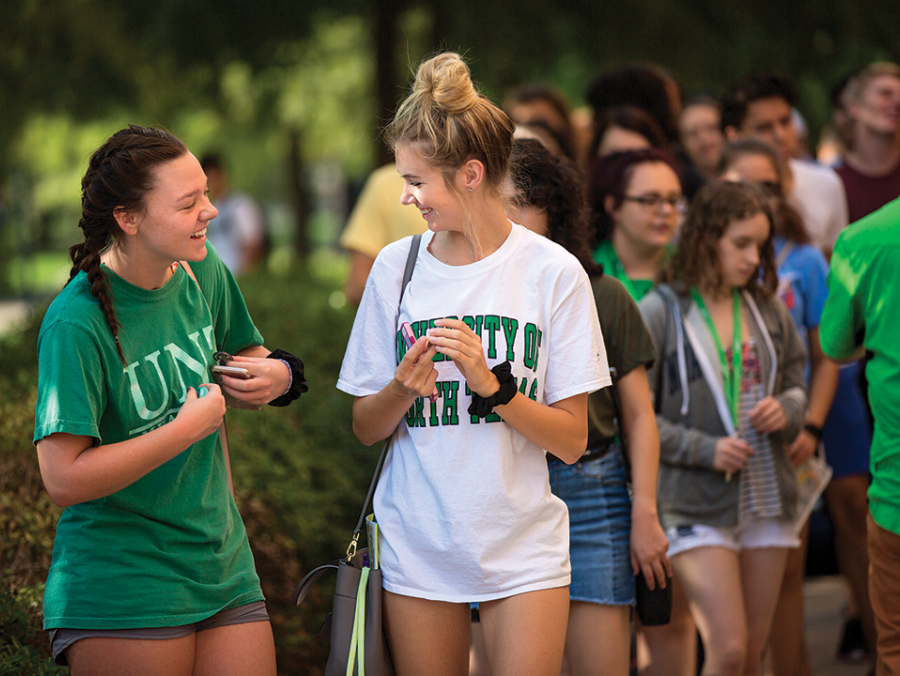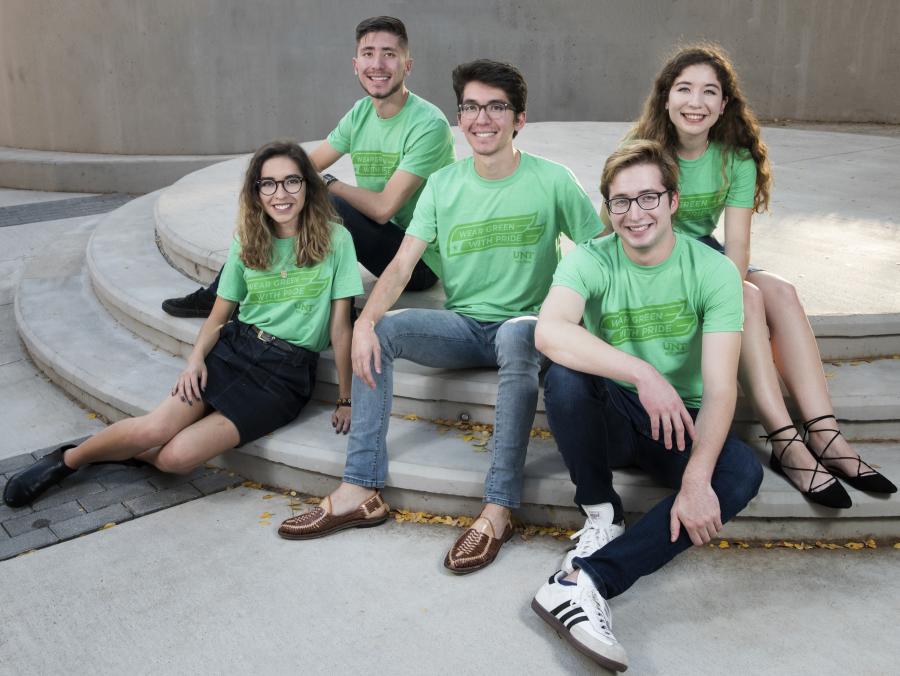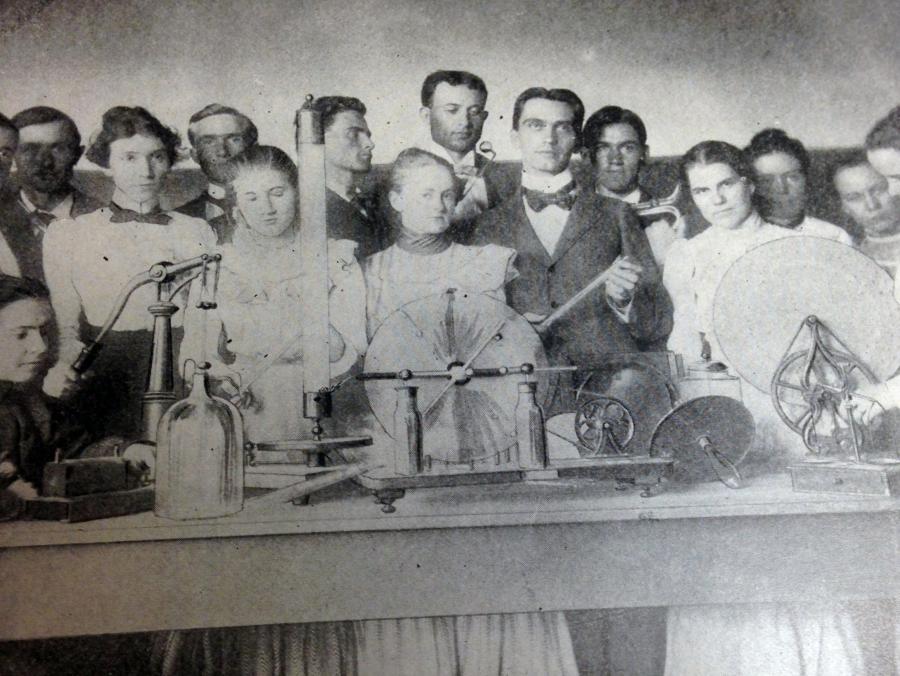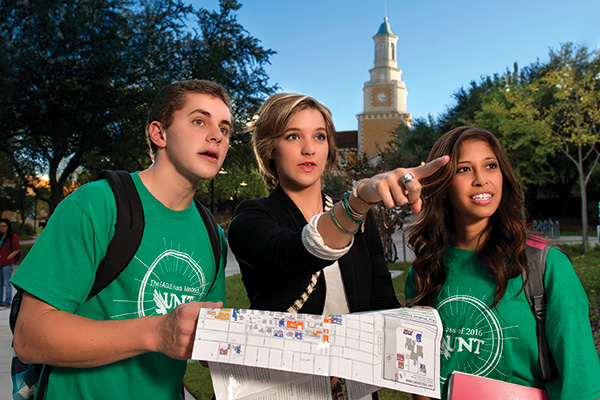 Like many freshmen, Ashley Hinck was nervous when she started college. She wondered if she would make new friends. She felt sad about leaving her parents.
Like many freshmen, Ashley Hinck was nervous when she started college. She wondered if she would make new friends. She felt sad about leaving her parents.
And she didn't have a major. When she told folks back home she was undeclared, they gave her a disapproving, "Oh."
"It was seen as a bad thing," she says. "Like I had no direction in my life."
But UNT had just the program to help Hinck and other students like her.
The Core Curriculum learning communities program for undecided majors includes a First-Year Seminar class to help students choose their academic field. After taking an interest and career survey and interviewing professors for research on career fields, Hinck realized she would fit best in the "helper" professions. Now, she's majoring in psychology.
"Several of my friends ended up changing their majors at some point in their college career," she says. "I was able to just skip that step and go straight into discovering what I wanted to do."
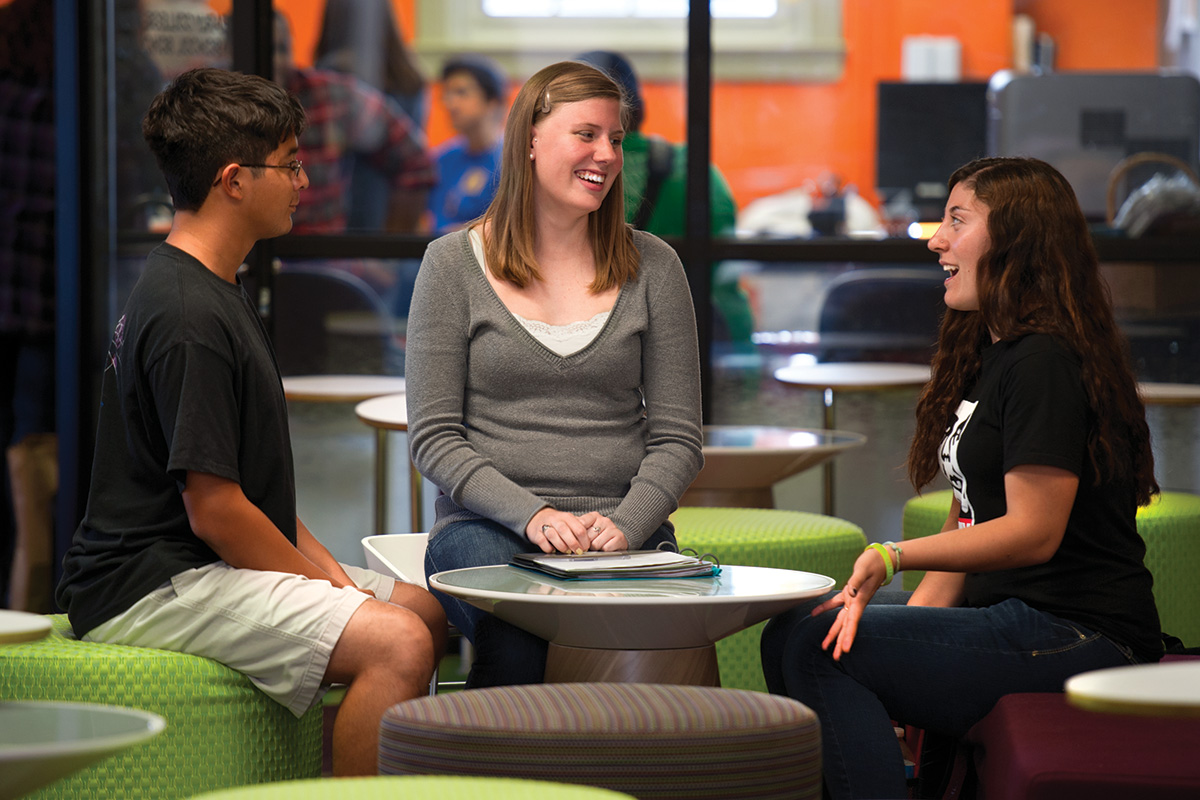 This program is one of numerous ways UNT prepares freshmen for success. In many cases, this first year in college is their first time to experience true independence and responsibility. And they are barraged with life changes as they live in a new place, take more challenging classes and choose career goals.
This program is one of numerous ways UNT prepares freshmen for success. In many cases, this first year in college is their first time to experience true independence and responsibility. And they are barraged with life changes as they live in a new place, take more challenging classes and choose career goals.
For two consecutive years, UNT has admitted its largest and most academically talented freshman classes with SAT scores higher than the Texas and national averages. To ensure these first-year students find continued success, the university has created a series of initiatives to help them flourish by welcoming them to campus and helping them make connections with peers, faculty and staff.
These programs begin with a comprehensive orientation session before they even take their first class. Other initiatives — such as learning commons in academic buildings — encourage students to study together, while other programs lead them to get involved in social activities.
Look at Hinck now — she has an eye on a career in counseling. And as a peer mentor, she encourages other undecided students to find something they are passionate about.
"If you have at least one thing you love," Hinck says, "you will feel more connected with the university and it will become your home."
Getting oriented
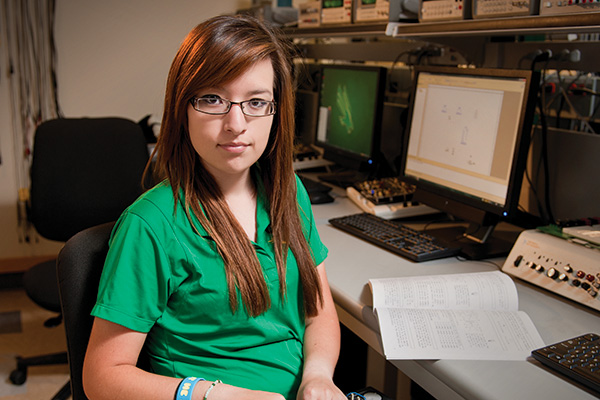 For Leticia Hernandez, adjusting to college life was tough. Now a sophomore, the pre-electrical engineering major became the first in her family to go to college — earning 10 scholarships to get to UNT. But the reading and workload was more than she expected.
For Leticia Hernandez, adjusting to college life was tough. Now a sophomore, the pre-electrical engineering major became the first in her family to go to college — earning 10 scholarships to get to UNT. But the reading and workload was more than she expected.
"It's a huge transition coming from high school," she says. "I didn't know how to start studying for all these classes."
But Hernandez took on these new challenges with UNT's support. She began writing down important dates in her notebook and frequently called her mom for advice. And she became more active in social activities.
She now helps high school students apply to college as part of the organization G-Force, serves as a volunteer tutor for the Exceptional Engineers group and is chair of the community service committee for UNT's League of United Latin American Citizens.
"I always think when I'm really busy, 'It will be worth it in the end,'" she says. "My hard work will pay off with my degree."
More on the
freshman experience
One of the first things that helped Hernandez was orientation. As soon as students receive their acceptance letter, UNT reaches out to them by inviting them to one of the many summer orientation sessions. During the mandatory three-day event, students learn about university courses, policies and academic expectations, and they meet with an advisor and pre-register for classes.
They also get to meet Scrappy, the UNT mascot, and learn UNT traditions like how to make the Eagle claw and sing the fight song and alma mater.
But most importantly they meet other freshmen and make friends.
"I had a lot of fun because the very first person that I met is still my friend today," Hernandez says. "I met a lot of really nice people, including the orientation leaders. I got familiar with the campus, and by staying in the dorms I got to see what college life would be like."
Using UNT's private online social network, some freshmen meet each other before they even step foot on campus. This resource lets admitted students connect with other future classmates who share interests in majors, hometowns, residence halls, or areas such as entertainment or sports -- and coming to campus makes those connections real.
Students also can attend Eagle Camp, an extended orientation program the weekend before school starts. This year, 300 students met and bonded with their future classmates while learning valuable leadership skills through creative activities like performing skits and raising money for a local food bank.
"Our primary goal is for students to connect with incoming and current students before classes begin," says Janice Hicks, coordinator of the Orientation and Transition Programs office. "It helps make the university feel more like home to our students."
Each August, freshmen are welcomed during Mean Green Move-In to their new home by hundreds of campus volunteers — including students, faculty, staff and President V. Lane Rawlins — when the 13 residence halls open the week before school starts.
During First Flight Week, the first week of school, students become more immersed in campus life with convocation, seminars and the Mean Green Fling social event.
In the classroom
By then, students are already attending their first classes. Many freshmen take one-semester Discovery courses, part of the Core Curriculum classes that all students must take, that prepare them for their majors and the undergraduate experience.
Psychology majors can take "Mythbusting: Distinguish Fact from Fallacy in Psychological and Everyday Life," and marketing majors can learn about "International Cultures and Consumption" or "Professional Selling."
One timely course this fall, "Panic, Power and Persuasion," combined political science and psychology courses so students could examine the presidential race from a psychological perspective.
Hernandez took a "Learning to Learn" class in engineering, in which students experiment with different learning styles. Students assemble electronic circuits, collaborate on presentations and create professional reports. Hernandez says these presentations gave her the double benefit of learning communication skills and building new friendships.
"Presentations are something I must get used to because of my field," she says. "I'm able to get the practice I need."
The class is similar to the First-Year Seminar that Hinck took for undecided majors. Also a Discovery course, the seminar helps students learn good study habits and develop methods of testing new ideas in addition to surveying career options. The students also take two other classes together so they see the same people in three of their classes, helping a large campus feel more familiar.
First-Year students can team up to study together in the learning commons at Sage Hall, the former Business Building that was transformed last year into a one-stop resource center with various offices focused on student success — such as the Honors College, Emerald Eagle Scholars and Study Abroad.
"You don't learn alone," says Celia Williamson, vice provost for education innovation. "You learn together."
Also in Sage Hall, the Learning Center provides students with many resources, including individual and online tutoring, study groups and dozens of workshops. The center also oversees the 108-item ENGAGE survey, which assists with identifying students who may need additional help. More than 4,000 students take the survey during orientation. Then, UNT staffers reach out to students who may appear to need more help and advise them about available campus resources.
"This helps the student know that someone cares," says Joshua Adams, the center's director. "And it hopefully leads them to the resources and help they need."
Social life
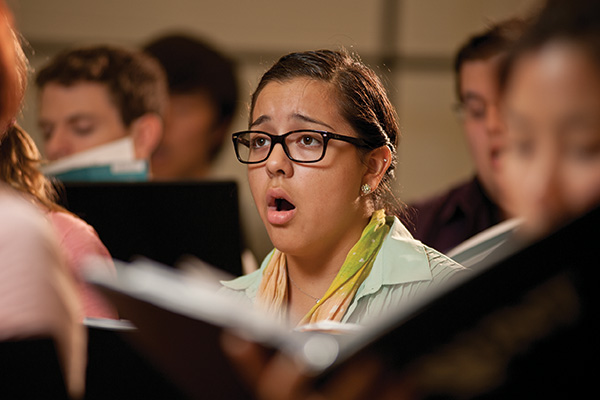 Freshman music education major Sophia Ramirez is making friends at Bruce Hall. She lives with her fellow music majors there in one of UNT's 15 REAL (Residents Engaged in Academic Living) communities, which combine students of the same major on the same floor or in the same residence hall.
Freshman music education major Sophia Ramirez is making friends at Bruce Hall. She lives with her fellow music majors there in one of UNT's 15 REAL (Residents Engaged in Academic Living) communities, which combine students of the same major on the same floor or in the same residence hall.
Since she and the other residents take the same classes, they often study together at Bruce. They even practice music in the laundry room — taking a keyboard and working on a few trouble spots they had in choir while washing their clothes. She and her friends exercise in each other's rooms, eat Chinese food, watch TV and paint their nails together.
"Bruce Hall has helped me adjust to college life by being a second home," she says. "I love UNT."
Just as Ramirez did, students need to get engaged in their community, says Dylan Matsumori, staff psychologist and outreach coordinator for Counseling and Testing Services.
"Part of being successful in a university is finding your niche and knowing what your interests are, what you are good at and what you value," he says.
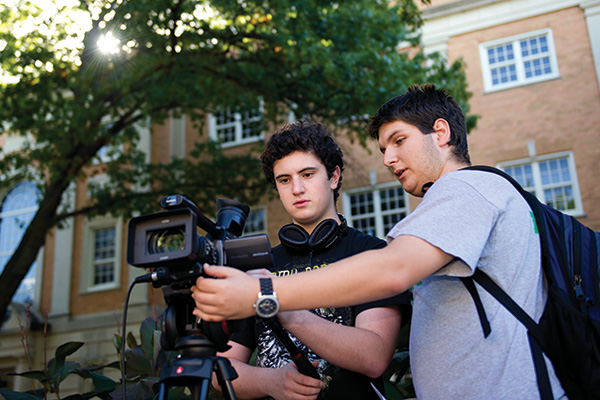 Sophomore Matthew Beldon is interested in becoming a TV news producer. He belongs to a student group who produces a series of videos, called 720, for the housing office that appear on YouTube. The series, made by students for students, advises freshmen about campus life, from financial aid to dining.
Sophomore Matthew Beldon is interested in becoming a TV news producer. He belongs to a student group who produces a series of videos, called 720, for the housing office that appear on YouTube. The series, made by students for students, advises freshmen about campus life, from financial aid to dining.
The crew members — who all live on the REAL community floor for radio/TV/film majors in Kerr Hall — stick together. Beldon says beyond hanging out, going to the movies and playing Xbox together, they support each other whenever someone feels sick or needs to vent. They host study groups for different classes and proofread each other's papers. Producing the videos also gives them a creative way to put their classroom lessons to work.
"We're all close," he says, "because we're all working together."
Freshmen also can engage in social activities by using a social "passport," collecting stamps for activities they attend. They can document their experiences through the First-Year Photo Project, where their snapshots appear online.
A mentoring program gives students an opportunity to make connections on campus with faculty or staff members. And Family Weekend in the fall, with activities such as a barbecue dinner and football game, is a reminder to students and parents that family is constant.
Tammy Cain visited her daughter, freshman dance major Angelle Cain, during this year's Family Weekend. Cain says she knew her daughter was doing well because she received texts and phone calls from Angelle that mentioned new friends and activities in her residence hall.
"The messages were the real thing," Tammy says. "She was thriving."
Helping hand
But even with all the programs UNT provides, students sometimes need a little more help.
Counseling and Testing Services offers a variety of discussion groups, with topics such as mindful meditation and dealing with grief. Faculty members who see a student with any academic, behavioral or health problem — from a bad score on a test to frequent absences — can send a report through the Early Alert Response System, spearheaded by the Student Academic Readiness Team (START), and a staff member will contact the student. Freshmen with a grade point average below a 2.0 are sent an academic alert and required to attend an advising session and workshop.
The Dean of Students Office includes the CARE team, which helps students who may be struggling with an issue. For example, Maureen McGuiness, dean of students and assistant vice president for student affairs, talked to one homesick student and discovered she had been active in sports in high school. She advised her to participate in intramural sports so she would have an opportunity to create a network of friends. She learned that another student was living in his car and quickly helped him find housing.
About 400 student organizations on campus — from recreational sports to Greek life to service organizations — provide students with social activities to balance their academic lives.
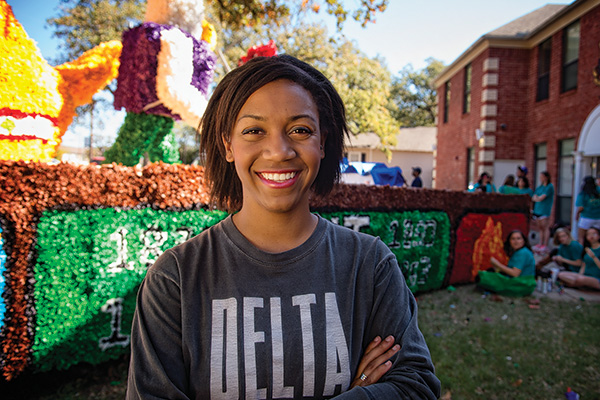 "A lot of the things we do help lay the foundation for the next four or five years of a student's life," McGuiness says.
"A lot of the things we do help lay the foundation for the next four or five years of a student's life," McGuiness says.
That foundation led to a new way of thinking for senior development and family studies major Alyssa Dixon.
As a freshman, she came to campus knowing only a few people. She soon took advantage of UNT's social activities such as pledging a sorority and she founded the student organization Invisible Children to get students involved in human rights.
"Being involved has made me a well-rounded person," she says. "I've worked with a diverse group of people and have learned to love and respect everyone despite differing viewpoints."
Dixon advises freshmen to embrace the college experience at UNT.
"You can grow," she says, "and become someone completely different here."
UNT's Class of 2016 is:
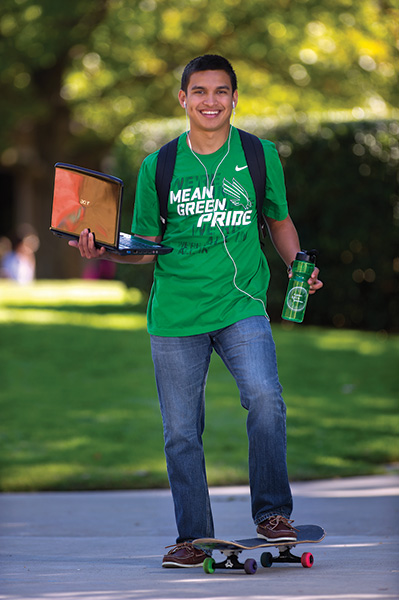
- The largest and most academically talented UNT freshman class with an average SAT score of 1106, higher than the Texas and national averages.
- Savvy in using the latest technology tools (iPads, e-book readers), making backpacks lighter and learning more accessible.
- Aware of the value and quality of a UNT education — 78 percent receive financial aid and scholarships.
- Wired and connected, making access to their friends, family and faculty immediate, effective and safe.
- Part of the "green" generation that has helped UNT make The Princeton Review list of environmentally responsible universities.
- Proud of UNT and bleeding green by being committed to giving back and staying engaged through about 400 student organizations on campus.



